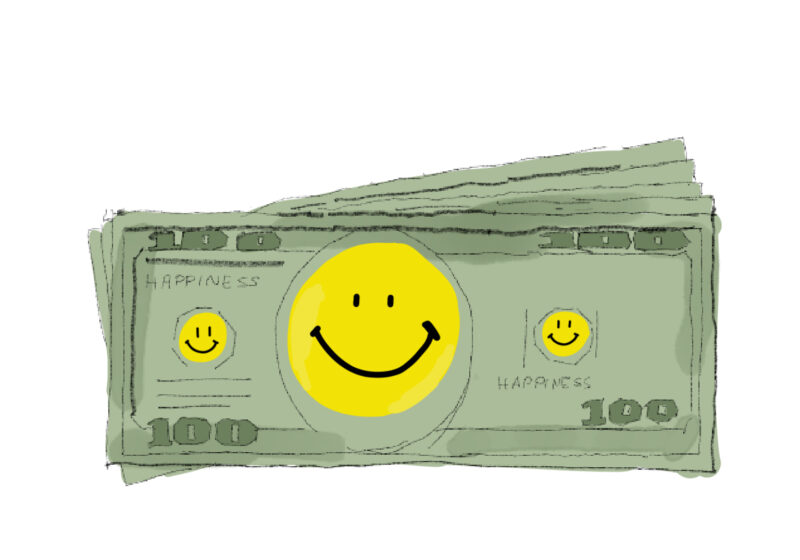This week, with the return of “American Idol,” we Americans can again take pleasure in the enthralling spectacles that are the broken notes and dreams of America’s youth. But, buried somewhere among the wreckage of shattered adolescent aspirations, we can find a compelling lesson, a gospel on how our world should be. It isn’t in the courage that these intrepid youths display as they place their confidence on the stage — and the line — to be shredded just moments later.
And it isn’t the perseverance and work ethic that these trembling teens remind you of with every convincing emotional interpretation of Mariah Carey. No, friends and colleagues, it is instead the criticism that the show doles out by the ton — the biting, acerbic and often excessive disparagements that flow mercilessly from that coy British host and his compatriots — that makes “American Idol” worthwhile. Because, let’s be honest, those kids deserve it.
In these dark days of American society, the art of criticism — a truly necessary talent — has been overshadowed by that evil e-word — the one that has every tone-deaf youth and uncoordinated JV basketball towel boy thinking that they, too, can be superstars one day. I speak, of course, of encouragement, the scourge of modern civilization. Still drawing at a third grade level? Don’t worry, buddy, just keep at it and the museums will be pounding at your door. Have bad vision and one blind eye? Hell, sure you can still be a pilot — that’s what contacts are for, right? If someone listened to everything their parents, teachers and coaches told them, they’d believe that they could do anything they wanted. Come now, we all know that that is just terribly, horribly, incredibly wrong.
Even worse, if criticism is offered it’s often of the constructive variety — faltering at the last moment, the critic will use that imperative ” . . . but,” to salvage the feelings of the incompetent. “Oh, well, your story sucks . . . but does a lot of things well.”
It’s a balk of epic proportions, but inexplicably the feelings of these doomed artists are perceived as more important than the emotional state of us, the subjects of these repeatedly failed attempts. What does constructive criticism accomplish? Nothing more than an anguish-inducing repeat performance.
But these days, good chums, I’m happy to tell you that the “try” is going out of style. It’s like Simon says — either you’re good or you’re not. “If at first you don’t succeed, cry, bye, the end,” is the ditty our elementary children will recite. Inspirational fables will be revised. Children will no longer think that the tortoise has any place being in a race and will learn that no one gives a damn what little engines can do when we all know that big engines can do it faster and better. Yes, the days of destructive criticism will reign supreme, and productively so. Bad semester at college? You’re an unparalleled idiot. Move back in with your parents.
The plumber having trouble with a clogged pipe? Imbecile. Bludgeon him with a plunger and have his business stripped from the Yellow Pages. Coaching a gymnast who just can’t stay on her feet? No one wants to see that — tell her to give porn a whirl.
If someone alleges that they have a skill and then fails to perform, it is your responsibility to remind them firmly and as maliciously as possible that they actually don’t have that skill, and perhaps they should join the circus. It is, after all, for their own benefit. And ours.
This plan can’t work without everyone’s support. Go ahead — give it a try. I think you’ll find destructive criticism to be contagious. Once you’ve told a young songstress that the past 17 years of her life were spent developing the voice of a dying aardvark, you can be confident that she too will be eager to pillage and burn the hopes and dreams of her peers. Then, with any luck, she’ll give up her futile quest for stardom and instead become a prep cook at McDonalds.
But don’t feel bad — you benefit twofold. No longer must you suffer the shrill melodies of an aspiring artist, and you can be assured that your humiliated hamburger cook will have her mind on the job. The end result of this movement? Naturally, just as “American Idol” slaughters the self-esteems of thousands of youths and sends them careening away from the life they envisioned, so shall we weed out the unfit. Then, my friends, bliss will reign.
We can enjoy a world of perfection, a world of unfaltering standards. Every expectation will be met, and we can be assured that the only artisans that provide our world with any sort of entertainment will be only those of the absolute highest caliber.
Like me.
Janowitz is a junior and can be reached at njanowitz@campustimes.org.






